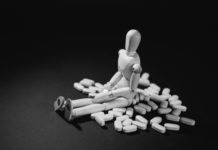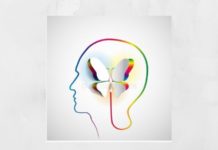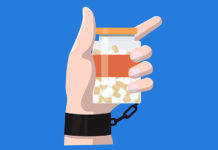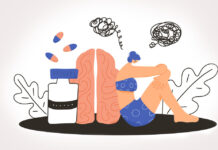Things Your Doctor Should Tell You About Antidepressants
The conventional wisdom is that antidepressant medications are effective and safe. However, the scientific literature shows that the conventional wisdom is flawed. While all prescription medications have side effects, antidepressant medications appear to do more harm than good as treatments for depression.
How to Avoid Severe SSRI Withdrawal Symptoms?
After long-term use, most people are going to have serious symptoms when stopping SSRIs. Many people are going to have transient, mild to moderate difficulty and some are going to end up falling down the akathisia rabbit hole. That is a long, difficult drop.
Playing the Odds: Antidepressant ‘Withdrawal’ and the Problem of Informed Consent
If I thought that it was possible, I would have opened a string of clinics all over the country to help get people off of antidepressants. Unfortunately, the problems that sometimes occur when people try to stop an SSRI antidepressant are much more severe and long-lasting than the medical profession acknowledges, and there is no antidote to these problems. The truth is, giving people information about taking antidepressants is like giving information to people who are enroute to a casino; they go because they hear that some people win (at least for a time), but the losers are the ones who ultimately pay for it all — and the odds are not in their favor.
More on Benzos and Cognitive Damage
There is mounting evidence that benzodiazepines are causing Alzheimer's Disease. I cannot imagine any genuine medical specialty ignoring or downplaying information of this sort. But psychiatry, with the perennial defensiveness of those with something to hide, promotes the idea that they are safe when used for short periods, knowing full well that a huge percentage of users become "hooked" after a week or two, and stay on the drugs indefinitely.
Stopping the Madness: Coming Off Psychiatric Medications
Millions of patients find themselves caught in the web of psychiatric sorcery - a spell cast, hexed, potentially for life. They are told that they have chemical imbalances. They are told that the most important thing they can do for themselves is to "take their medication," and that they will have to do so "for life." Most egregiously, patients are sold the belief that medication is treating their disease rather than inducing a drug effect no different than alcohol or cocaine. That antidepressants and antipsychotics, for example, have effects like sedation or blunting of affect, is not a question. That these effects are reversible after long-term exposure is.
The New Yorker Peers into the Psychiatric Abyss… And Loses Its Nerve
The New Yorker's story on Laura Delano and psychiatric drug withdrawal is a glass-half-full story: It addresses a problem in psychiatry and yet hides the deeper story to be told. A story of how her recovery resulted from seeing herself within a counter-narrative that tells of the harm that psychiatry can do.
Holistic Approaches: A Proven Treatment for Psychotropic Drug Withdrawal
Published in the peer-reviewed journal Advances in Mind Body Medicine, this case series is the first of its kind to document the methodology employed in the successful discontinuation of a range of psychotropic medications, with holistic support interventions providing long-term mood support.
Gradual Reduction is Best For Coming Off Meds: But In All Situations?
The phrase "medication tapering" is being used more and more as the preferred term for the psychiatric medication withdrawal or coming off process. Based on my years of work educating many people around coming off medications -- clients, support groups, and in workshops and trainings -- I think that term is misleading, and let me explain why.
The Reckoning in Psychiatry Over Protracted Antidepressant Withdrawal
Medically-induced harm—affecting tens of millions of people worldwide—has taken the field decades to take seriously.
Psychiatric Drugs: More Dangerous Than You Ever Imagined (A New Video)
“Psychiatric Drugs are More Dangerous than You Ever Imagined” is the newest video in my series Simple Truths about Psychiatry. It provides a simple, direct and inescapable warning about this epidemic of harm induced by psychiatric drugs. The video sounds a necessary alarm about this growing tragedy, involving millions of people and their families, who never foresaw the disabling results of taking psychiatric drugs and giving them to their children.
The Review on Antidepressant Withdrawal That Cochrane Won’t Publish
Peter Gøtzsche and Anders Sørensen on trying to get a review of methods for safe antidepressant withdrawal published in Cochrane: "They sent us on a mission that was impossible to accomplish" to "protect the psychiatric guild."
Psychiatric Drug Withdrawal in Spain
My study, in which I slowly withdrew people from prescribed antipsychotics and antidepressants, found that it is possible to decrease both spending on psychiatric drugs and patients' chronic exposure to them. In general, the drug-reduction process was well-tolerated and well-accepted among those treated.
Early Death Associated With Antipsychotics
There are a vast number of studies that document the diverse range of side effects caused by antipsychotic drugs. These adverse effects include brain...
10 Things I Learned in 5 Years Consulting With People Coming Off Psych Drugs
It's been over 5 years since I started offering non-medical consultations to people in the process of coming off or hoping to come off psych drugs. I wanted to share here some things I have learned in this process. Despite how far we have come, we have a long way to go in the quest to liberate all who wish to be liberated from psychiatry.
The Temptation of Certainty: David Foster Wallace, Suicide and Psychiatric Drug Withdrawal
While increasing numbers of Americans are being prescribed antidepressants, the Centers for Disease Control reports that suicide rates increased 28% from 1999 to 2010. Trained professionals remain unable to predict who is at risk. Their guess is as good as chance.
A Tale of Two Studies
With increasing evidence that psychiatric drugs do more harm than good over the long term, the field of psychiatry often seems focused on sifting through the mounds of research data it has collected, eager to at last sit up and cry, here’s a shiny speck of gold! Our drugs do work! One recently published study on withdrawal of antipsychotics tells of long-term benefits. A second tells of long-term harm. Which one is convincing?
Antidepressant Withdrawal: An Unknown Disorder?
Antidepressant withdrawal is no longer an unknown disorder since knowledge on this topic has grown enough to be translated into practice. As proposed by George Engel in 1977, medical doctors, including psychiatrists, can observe and listen to their patients and develop a program to treat withdrawal and restore health.
How Long Does Antidepressant Withdrawal Last?
The patient experiencing the pain of withdrawal believed that they would feel better when they stopped taking their antidepressants. After all, they’re under the care of a board-certified medical professional who has vowed to do no harm. But despite those reassurances, they find themselves in a world of hurt.
How Academic Psychiatry Minimized SSRI Withdrawal
If academic psychiatry is evidence-based, why did it take two decades to recognize SSRI withdrawal as widespread and chronic among patients?
A Different Psychiatry Is Needed for Discontinuing Antidepressants
The problems related to the use of antidepressants cannot be solved by an oversimplified psychiatry brainwashed by the pharmaceutical industry.
The Bitterest Pills: The Troubling Story of Antipsychotic Drugs
As I see it this website is about filling the gaping hole in the official literature on mental health problems and their treatment. Since these problems were declared to be diseases, ‘just like any other’, academic papers present them as if they were simply technical glitches in the way the brain or mind works. They can be identified by ticking a few boxes, and easily treated by tweaking the corresponding defect with a drug or a few sessions of quick-fix therapy. What it is like to experience these problems and their treatments is nowhere to be found. Yet in post after post on this site among others, we hear about the harm produced by drugs that are prescribed for mental health problems.
Do Antipsychotics Worsen Long-term Schizophrenia Outcomes? Martin Harrow Explores the Question.
Martin Harrow and Thomas Jobe have a new article coming out in Schizophrenia Bulletin that I wish would be read by everyone in our society with an interest in “mental health.” Harrow and Jobe, who conducted the best study of long-term schizophrenia outcomes that has ever been done, do not present new data in this article, but rather discuss the central question raised by their research: Does long-term treatment of schizophrenia with antipsychotic medications facilitate recovery? Or does it hinder it?
Harrow + Wunderink + Open Dialogue = An Evidence-based Mandate for A New Standard...
In the wake of the new study by Dutch researcher Lex Wunderink, it is time for psychiatry to do the right thing and acknowledge that, if it wants to do best by its patients, it must change its protocols for using antipsychotics. The current standard of care, which—in practice—involves continual use of antipsychotics for all patients diagnosed with a psychotic disorder, clearly reduces the opportunity for long-term functional recovery.
Learning About Psychiatric Drug Withdrawal
We held the first course ever on psychiatric drug withdrawal on 12 June 2017 in Copenhagen. The course was open to patients, relatives, psychologists, doctors and other social and healthcare workers, and 77 people participated.
Benzodiazepines: Dangerous Drugs
When the benzodiazepines were first introduced, it was widely claimed, both by psychiatrists and by pharma, that they were non-addictive. This claim was subsequently abandoned in the face of overwhelming evidence to the contrary, and the addictive potential of these products is now recognized and generally accepted.























